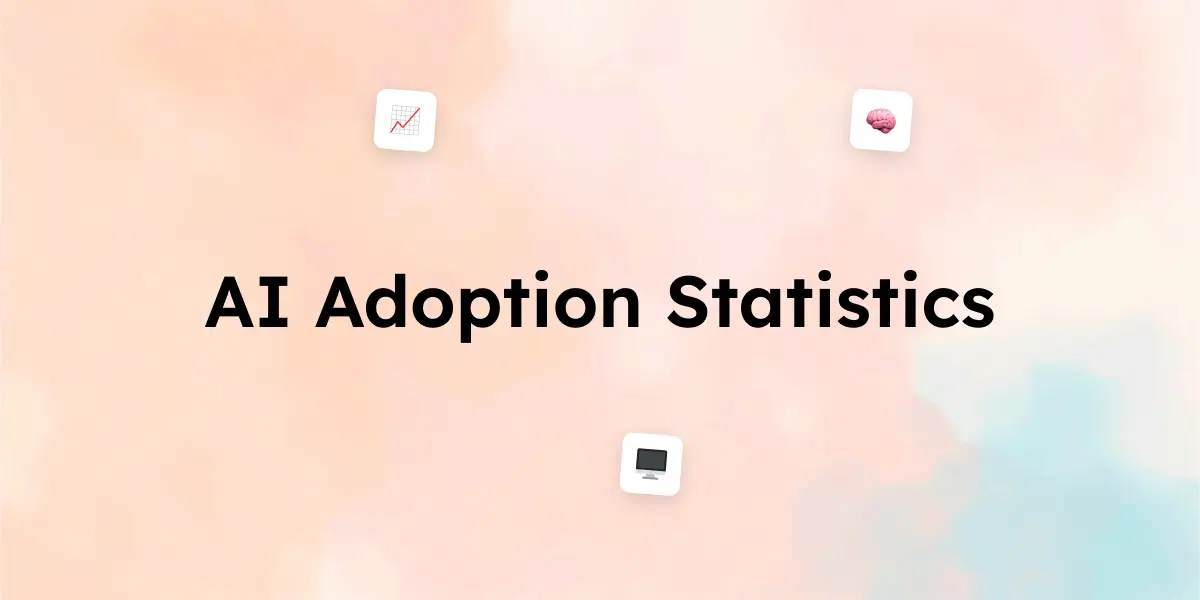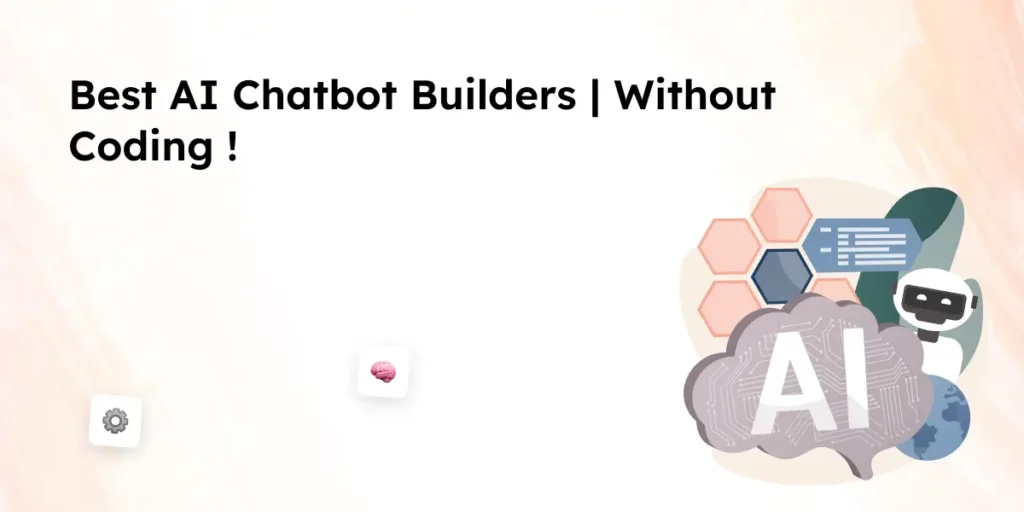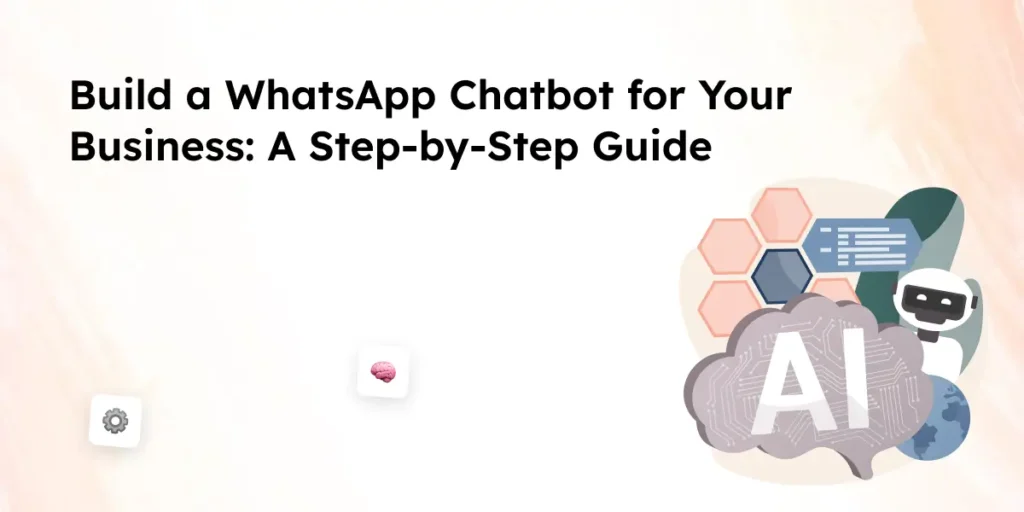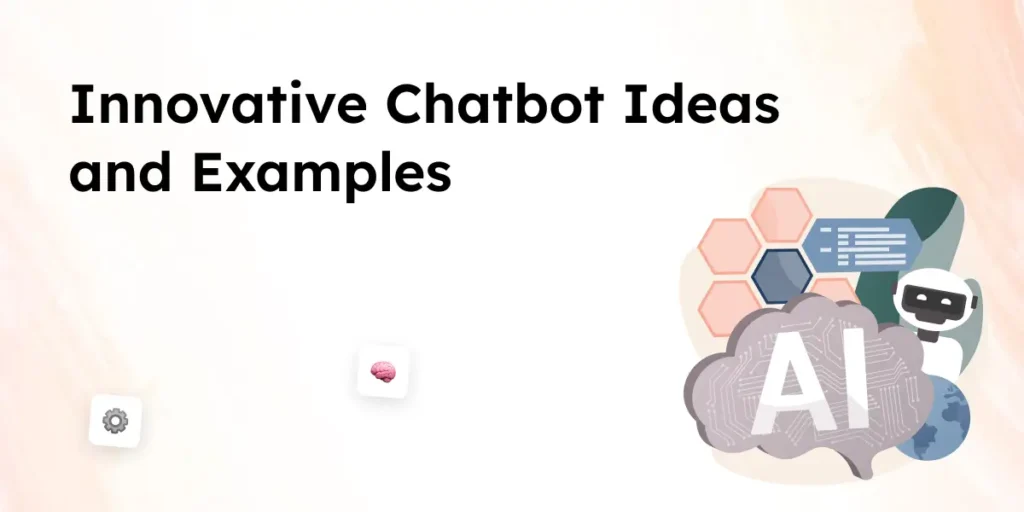Artificial Intelligence (AI) is no longer a futuristic concept—it’s shaping industries, transforming jobs, and enhancing everyday life. By 2025, 90% of businesses will adopt AI, AI-driven automation will contribute $15.7 trillion to the global economy, and new AI-powered innovations will redefine how we work, shop, and interact.
In this blog, we’ll explore 35 must-know AI adoption statistics, covering business integration, workforce impact, market trends, and consumer adoption. Whether you’re an AI enthusiast, investor, or tech professional, staying ahead of these trends will help you navigate the AI-driven future. Let’s dive in!
35 AI Adoption Statistics
🔥 AI Adoption in Businesses
- 90% of companies are expected to use AI in some form by 2025.
- AI-driven automation could increase global GDP by $15.7 trillion by 2030.
- By 2025, 50% of all enterprises will have adopted AI for at least one business function.
- AI in customer service will power 95% of customer interactions through chatbots and AI-driven assistants.
- AI-generated content is expected to account for 30% of all digital content.
- AI-powered cybersecurity solutions will be deployed in over 80% of businesses to detect and prevent cyber threats.
- AI-driven decision-making could improve business productivity by 40%.
- AI in supply chain management is expected to reduce operational costs by 20% to 30%.
- AI adoption in HR will see a 50% increase, helping companies automate recruitment and performance analysis.
- AI in healthcare will contribute to a $200 billion market by 2025.
👩💻 Workforce & AI Integration
- By 2025, AI is expected to replace 85 million jobs but create 97 million new ones.
- 50% of employees will need AI-related reskilling by 2025.
- AI-powered tools will automate 30% of repetitive workplace tasks.
- 70% of global executives believe AI will create more job opportunities than it will eliminate.
- AI in remote work will lead to a 25% increase in productivity by 2025.
- AI-driven personalized learning will be implemented in 60% of companies for employee training.
- AI-powered recruitment tools will screen 75% of job applications automatically.
- AI-based mental health solutions will be used by 40% of HR departments to support employee well-being.
🌍 Global AI Investments & Market Trends
- The global AI market is projected to reach $500 billion by 2025.
- China and the U.S. will remain the top AI investors, accounting for 70% of global AI funding.
- AI-driven startups will attract $100 billion in funding in 2025.
- AI regulations will become stricter, with 75% of companies needing compliance measures.
- AI chip market will exceed $70 billion, driven by demand for high-performance computing.
- AI-driven personalization will boost e-commerce sales by 20%.
- AI in agriculture will see a 50% growth, optimizing crop yields and resource use.
📱 AI & Consumer Adoption
- Voice assistants will be used by 55% of households for daily tasks.
- AI-powered recommendations will influence 80% of online purchases.
- AI-powered healthcare chatbots will handle 30% of non-emergency doctor visits.
- AI in education will help personalize learning for 500 million students worldwide.
- AI-generated music & art will be responsible for 10% of global creative content.
- Smart home AI adoption will grow by 35%, improving energy efficiency.
- AI-driven self-driving technology will reduce traffic accidents by 15%.
- AI-powered translation tools will enable real-time conversations in over 100 languages.
- AI in social media will detect 90% of fake news and misinformation before it spreads.
- AI-powered fitness apps will see a 50% adoption rate, providing personalized training and nutrition plans.
Key AI Adoption Insights for 2025
Beyond the statistics, understanding the implications of AI adoption helps us anticipate trends, prepare for challenges, and leverage AI’s potential effectively.
1️⃣ AI in Business: Competitive Advantage or Necessity?
- AI is no longer just a competitive advantage—it’s becoming a necessity for businesses.
- Companies that fail to integrate AI into operations risk falling behind competitors that automate processes and optimize decision-making.
- Example: Retailers using AI-powered inventory management can reduce stock shortages by 30%, improving sales and customer satisfaction.
💡 What This Means for AI Enthusiasts:
- Understanding AI’s role in business efficiency can help you consult, advise, or build AI-driven solutions.
- Skills in AI automation, predictive analytics, and machine learning will be in high demand across industries.
2️⃣ Workforce & AI: Job Displacement vs. Job Creation
- AI won’t eliminate jobs—it will transform them.
- The rise of AI augmentation means humans and AI will collaborate, rather than compete.
- Jobs requiring creativity, emotional intelligence, and complex decision-making will be less affected.
- Example: AI tools like GitHub Copilot help programmers write code faster, but human expertise is still crucial for problem-solving and debugging.
💡 What This Means for AI Enthusiasts:
- AI upskilling will be essential—AI literacy, prompt engineering, and automation skills will differentiate job candidates.
- Careers in AI ethics, explainable AI (XAI), and AI-human interaction will become increasingly important.
3️⃣ AI Investments & Market Growth: A Billion-Dollar Boom
- The AI market is projected to surpass $500 billion by 2025.
- Venture capital funding in AI startups is expected to hit $100 billion.
- Big tech and governments will continue driving AI advancements, particularly in healthcare, cybersecurity, and autonomous systems.
💡 What This Means for AI Enthusiasts:
- AI entrepreneurship is booming—if you’re considering launching an AI-driven product or startup, 2025 is the time.
- Investors are prioritizing AI solutions that focus on efficiency, cost savings, and automation.
4️⃣ AI in Everyday Life: Hyper-Personalization & Automation
- AI is shaping how we shop, communicate, and consume content.
- AI-driven hyper-personalization in e-commerce, streaming, and news feeds is enhancing user experience.
- Example: Netflix’s AI algorithms analyze watch history, engagement, and preferences to recommend content, increasing retention.
💡 What This Means for AI Enthusiasts:
- If you’re into AI product development, integrating AI-driven recommendations into apps, platforms, or websites will be key.
- AI-powered conversational agents and virtual influencers will dominate social media and marketing.
The Future of AI in 2025 and Beyond
- AI Ethics & Regulations Will Gain More Attention
- Stricter AI governance policies will emerge to address bias, privacy, and security concerns.
- Businesses will need AI compliance experts to navigate new AI laws.
- AI and the Metaverse Will Intersect
- AI will shape virtual worlds, digital avatars, and real-time interactions.
- Example: AI-powered NFT creation tools are already disrupting the digital art world.
- Quantum AI Will Unlock Unprecedented Computational Power
- The fusion of quantum computing and AI will accelerate problem-solving in drug discovery, climate modeling, and cryptography.
Conclusion: The Future of AI Adoption in 2025
AI adoption is accelerating across industries, transforming businesses, reshaping the workforce, and enhancing everyday life. By 2025, AI will no longer be an emerging trend but a fundamental driver of economic growth and innovation. Companies leveraging AI for automation, decision-making, and personalization will outperform competitors, while individuals with AI-related skills will gain a competitive edge in the job market.
For AI enthusiasts, staying informed about these trends is crucial—whether you’re an entrepreneur, developer, or investor. As AI continues to evolve, opportunities in machine learning, AI ethics, automation, and quantum computing will expand. The key is to embrace AI, adapt to its advancements, and leverage its potential to drive progress.
👉 What excites you most about AI in 2025? Let’s discuss! 🚀
FAQs: AI Adoption in 2025
1. How fast is AI adoption growing in businesses?
AI adoption is skyrocketing, with 90% of enterprises expected to implement AI in some form by 2025. From customer service chatbots to AI-driven analytics, companies are integrating AI to boost efficiency, reduce costs, and enhance decision-making.
2. Will AI replace jobs, or create new ones?
AI will disrupt jobs but also create new opportunities. While automation may replace 85 million jobs, it will generate 97 million new roles requiring AI-related skills. The key to staying ahead is reskilling and learning AI-driven technologies.
3. What industries will AI impact the most?
AI will have the biggest impact on healthcare, finance, retail, manufacturing, and cybersecurity. In healthcare, AI-powered diagnostics will improve accuracy, while in finance, AI-driven fraud detection will enhance security.
4. Is AI regulation increasing?
Yes, governments worldwide are introducing AI regulations to address bias, transparency, and ethical concerns. By 2025, 75% of businesses will need to comply with AI governance policies, making AI ethics a growing field of interest.
5. What AI skills should I learn in 2025?
To stay relevant, focus on skills like machine learning, deep learning, natural language processing (NLP), AI automation, and AI ethics. AI-related programming (Python, TensorFlow, PyTorch) and prompt engineering for generative AI will also be in high demand.
Sources:
McKinsey & Company
Gartner
PwC (PricewaterhouseCoopers)
Statista
CB Insights



